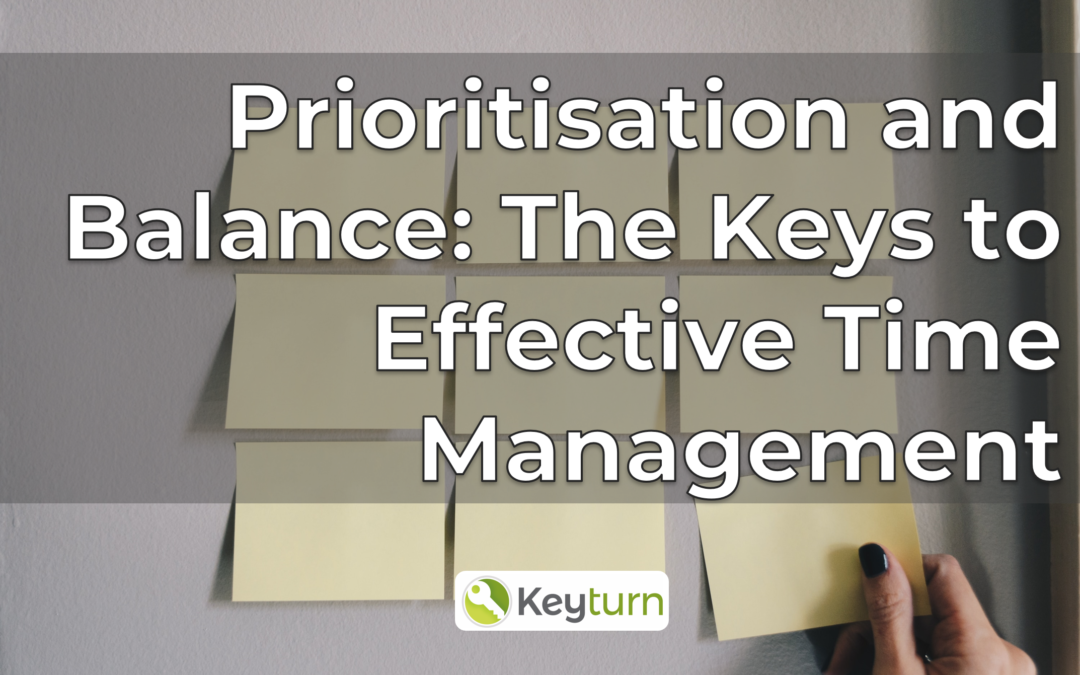Planning: Prioritisation and Balance – The Keys to Effective Time Management
In today’s fast-paced world, efficient time management has become crucial for personal and professional success. With numerous tasks, responsibilities, and commitments demanding our attention, it is easy to feel overwhelmed and lose sight of what truly matters. However, by mastering the art of planning, prioritisation, and balance, we can regain control of our lives and achieve a harmonious equilibrium. In this blog, we will explore the significance of these elements and provide practical tips to help you navigate through the complexities of modern life.
1. Understanding the Power of Planning:
Effective planning is the cornerstone of successful time management. It involves setting clear goals, defining actionable steps, and creating a roadmap to reach desired outcomes. By taking the time to plan, you gain a clear vision of what needs to be accomplished and can allocate resources accordingly. Without a plan, you risk wasting valuable time on non-essential tasks, leading to frustration and a lack of progress.
2. Prioritisation – Identifying What Truly Matters:
Once you have a plan in place, the next crucial step is prioritisation. Not all tasks hold the same level of importance or urgency. By distinguishing between essential and non-essential activities, you can focus your time and energy on what truly matters. The Eisenhower Matrix is a useful tool for categorising tasks into four quadrants: urgent and important, important but not urgent, urgent but not important, and neither urgent nor important. This framework enables you to make informed decisions and allocate resources accordingly, ensuring that you tackle high-priority tasks first.
3. The Art of Balance:
While planning and prioritisation help us achieve our goals, it is vital to maintain a healthy work-life balance. Neglecting personal well-being and relationships in pursuit of professional success can lead to burnout and unhappiness. Strive to create a schedule that includes time for self-care, relaxation, and spending quality moments with loved ones. It’s essential to recharge and rejuvenate regularly, as this will enhance productivity and overall satisfaction in all areas of life.
4. Delegation and Outsourcing:
Sometimes, prioritisation requires acknowledging that you cannot do it all on your own. Delegation and outsourcing can be powerful tools in achieving balance and maximising efficiency. Identify tasks that can be entrusted to others, whether it’s within your personal or professional life. By delegating responsibilities, you free up valuable time and mental bandwidth to focus on high-impact tasks that align with your core competencies.
5. Flexibility and Adaptability:
While planning and prioritisation are critical, it’s equally important to be flexible and adaptable. Life is unpredictable, and unexpected circumstances can arise that disrupt even the most meticulous plans. Embrace a mindset that allows for adjustments and be open to alternative approaches. This adaptability will help you navigate challenges and maintain balance even in the face of unforeseen events.
In the realm of time management, planning, prioritisation, and balance are invaluable tools that empower us to make the most of our days. By consciously allocating our resources, setting clear priorities, and maintaining a healthy balance between work and personal life, we can experience increased productivity, reduced stress, and a sense of fulfilment. Remember, effective time management is a journey, and it requires ongoing evaluation and adjustment. With practice and dedication, you can master the art of planning, prioritise effectively, and achieve a balanced and fulfilling life.

